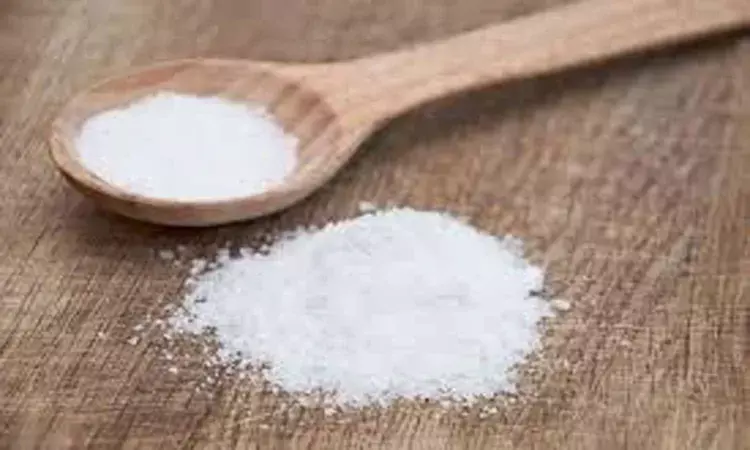- Home
- Medical news & Guidelines
- Anesthesiology
- Cardiology and CTVS
- Critical Care
- Dentistry
- Dermatology
- Diabetes and Endocrinology
- ENT
- Gastroenterology
- Medicine
- Nephrology
- Neurology
- Obstretics-Gynaecology
- Oncology
- Ophthalmology
- Orthopaedics
- Pediatrics-Neonatology
- Psychiatry
- Pulmonology
- Radiology
- Surgery
- Urology
- Laboratory Medicine
- Diet
- Nursing
- Paramedical
- Physiotherapy
- Health news
- Fact Check
- Bone Health Fact Check
- Brain Health Fact Check
- Cancer Related Fact Check
- Child Care Fact Check
- Dental and oral health fact check
- Diabetes and metabolic health fact check
- Diet and Nutrition Fact Check
- Eye and ENT Care Fact Check
- Fitness fact check
- Gut health fact check
- Heart health fact check
- Kidney health fact check
- Medical education fact check
- Men's health fact check
- Respiratory fact check
- Skin and hair care fact check
- Vaccine and Immunization fact check
- Women's health fact check
- AYUSH
- State News
- Andaman and Nicobar Islands
- Andhra Pradesh
- Arunachal Pradesh
- Assam
- Bihar
- Chandigarh
- Chattisgarh
- Dadra and Nagar Haveli
- Daman and Diu
- Delhi
- Goa
- Gujarat
- Haryana
- Himachal Pradesh
- Jammu & Kashmir
- Jharkhand
- Karnataka
- Kerala
- Ladakh
- Lakshadweep
- Madhya Pradesh
- Maharashtra
- Manipur
- Meghalaya
- Mizoram
- Nagaland
- Odisha
- Puducherry
- Punjab
- Rajasthan
- Sikkim
- Tamil Nadu
- Telangana
- Tripura
- Uttar Pradesh
- Uttrakhand
- West Bengal
- Medical Education
- Industry
High-salt Diet May Disrupt Body Clock and increase risk of disease and death: Study

Rockville, Md - Salt may disrupt the body's internal rhythms directly thereby increasing risk of metabolic syndrome, inflammation, mood disorders, cancer and even premature death, finds a new research.
The research will be presented virtually at the Seventeenth International Conference on Endothelin (ET-17).
High salt intake is known to increase risk of developing high blood pressure and heart diseases.
Disruption of the body's circadian rhythm is associated with increased risk of metabolic syndrome, inflammation, mood disorders, cancer and even premature death. With an estimated 90% of the U.S. population over 2 years old consuming too much salt, these new findings could have widespread implications.
The region of the brain called the suprachiasmatic nucleus (SCN) synchronizes all the clocks throughout our body. The SCN contains a type of receptor called endothelin B receptors. Elsewhere in the body endothelin B receptors play a key role in managing sodium. In fact, medications that block endothelin B receptors are prescribed to manage pulmonary hypertension.
Researchers at the University of Alabama at Birmingham fed mice an HSD and measured their movement throughout the day as well as their neuronal activity. Although their total activity was similar to control mice, HSD mice did not follow sleep-wake patterns established as normal by previous studies.
A hallmark trait of the suprachiasmatic nucleus (SCN) is to have higher neural activity during the day and less at night. However, HSD mice exhibited significantly elevated neuronal excitability at night as compared to control mice. "Neuronal excitability at night could lead to decline or mistiming of sleep-wake, hormonal and physiological rhythms," researchers wrote.
Nighttime neural activity abated when the mice were treated with an endothelin B receptor blocker. This abatement demonstrates both that the endothelin system may affect circadian rhythms and that endothelin B receptor medications could have unexpected impacts on the body clocks of people taking them.
Hina Zahid Joined Medical Dialogue in 2017 with a passion to work as a Reporter. She coordinates with various national and international journals and association and covers all the stories related to Medical guidelines, Medical Journals, rare medical surgeries as well as all the updates in the medical field. Email: editorial@medicaldialogues.in. Contact no. 011-43720751
Dr Kamal Kant Kohli-MBBS, DTCD- a chest specialist with more than 30 years of practice and a flair for writing clinical articles, Dr Kamal Kant Kohli joined Medical Dialogues as a Chief Editor of Medical News. Besides writing articles, as an editor, he proofreads and verifies all the medical content published on Medical Dialogues including those coming from journals, studies,medical conferences,guidelines etc. Email: drkohli@medicaldialogues.in. Contact no. 011-43720751


